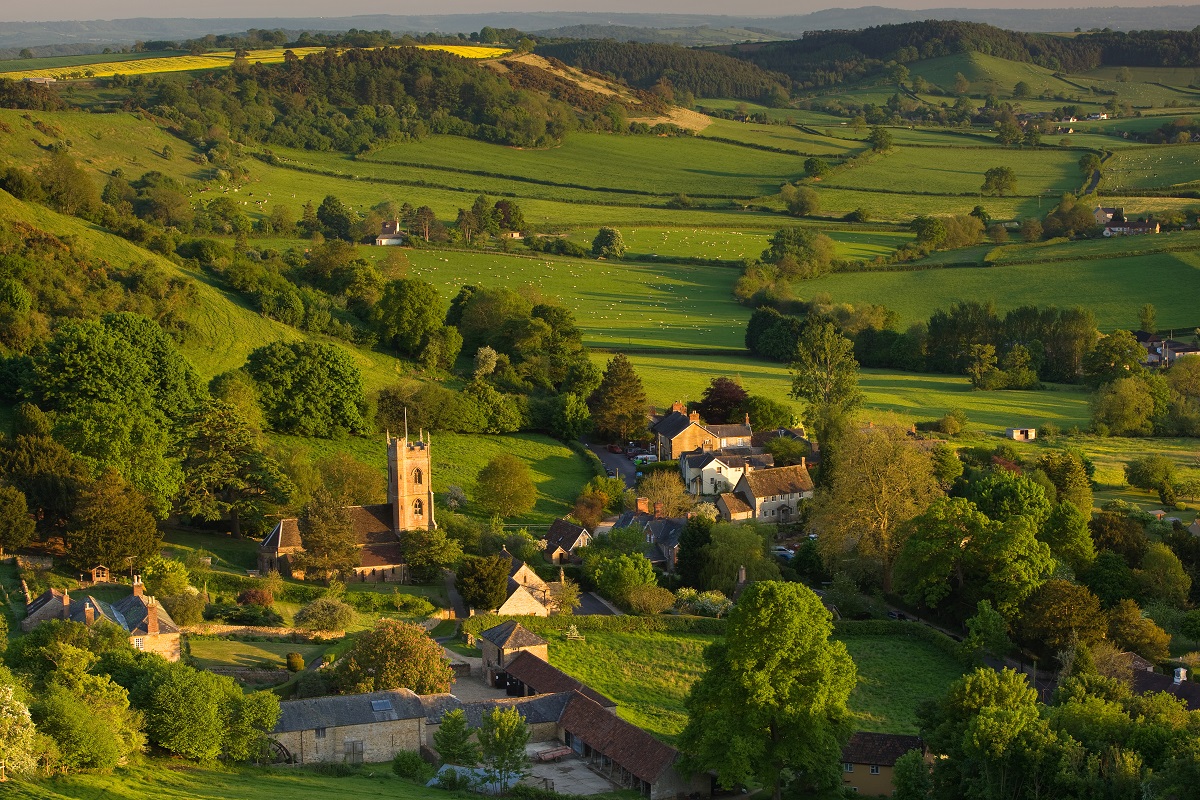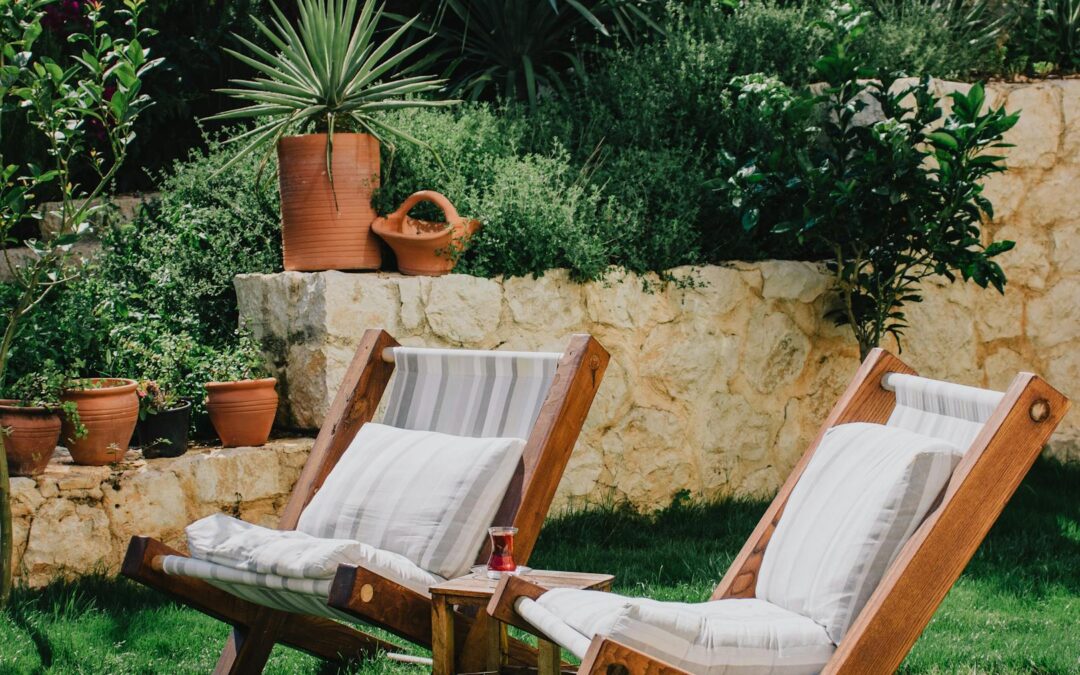Many of us have probably had that fantasy of escaping to the country in search of more space, peace and quiet and a better lifestyle.
And there’s certainly plenty to lure people away from the city’s bright lights.
“It is a way of life, that fresh air, looking over the hills, with nothing but the sound of nature,” says Jake Shaw-Tan, countryside-dweller and chartered surveyor at Galbraith estate agents in Ayr, Scotland.
Since the start of the Coronavirus pandemic, many people have thought about, or have actually moved, to a more rural setting. But where do you start? And how do you keep your feet firmly on the ground? OnTheMarket has 10 top tips to help make that dream country move a reality.
1. Do your research
You might already have an idea of location, whether that’s where you grew up or somewhere near friends or family. Or you might be considering a move to a completely new area. But it’s time to do your homework.
You could start online, perhaps on a forum or blog, and take a look at social media to see what people are saying. Get in touch with those who have knowledge of the local area including estate agents, property consultants, schools and community groups such as sports clubs.
2. Ask yourself lots of questions
It might sound obvious but writing a list of questions, plus pros and cons for different areas, including where you’re living, can be a useful exercise. Will you have to commute? What’s the internet provision like if you’re working from home?
How will you get around? What’s it like for families? Do you want to be close to a town or have nature on your doorstep? And don’t forget to keep an eye on the future – for example, is there any development planned in what you think will be your rural idyll?
3. Book a mini-break
Though it won’t be exactly like living there, taking a holiday in your target area will give you a taste of country life. And when you check in at a B&B, for example, the owners will have lots of local knowledge to share.
“Come down, drive around and explore, go into pubs and restaurants and get into conversation,” adds Christopher Linton from Christopher James Property Consultants in Cranbrook, Kent.
4. Sign up to estate agents
“Go back to the old-fashioned approach,” advises Kate Taylor of Taylor & Co in Abergavenny, Wales, “and register with the estate agents in the place where you’re going.”
And don’t forget you can also sign up for property alerts at OnTheMarket, and find agents in your chosen area on our website. Now’s also the time to embrace the technology of online viewings, adds Kate, particularly for long-distance moves.
5. Take your time
Christopher Linton’s experience of working in the rural market is that there’s not a high turnover of homes for sale as people tend to move into the area and stay put.
That means it might be harder to find the perfect property for you within a preferred timescale – for example if you’re bound by schools starting in September. Giving yourself time to look for the right property and area, advises Christopher, will help you avoid making an expensive mistake.
Read more
- A guide to choosing the right property survey
- A guide to buying an equestrian property
- Conveyancing: Fees, finding a conveyancer and everything in between
Kate Taylor adds: “Don’t move for the sake of moving. Most people make hasty decisions because they feel under pressure.”
And so to avoid being forced to pay a premium on an impulse buy, the stress of a synchronised purchase or feel pressured into buying the wrong property, you might think about other options, such as renting.
6. Consider renting before you buy
There’s a lot to be said for renting in the place you’re considering moving to, says Christopher, with time to look for the right property in the right location. And when you do find your dream home, “it puts you in a strong position, with no chain and you can negotiate.”
One downside is obviously that you’ll be spending your capital, and you might have to put possessions in storage. But if you currently own your own property, you could let that out too. You can read our rental jargon buster here.
That said, renting might affect your level of commitment to the move, and so you might prefer to go all in and buy straight away. Read our guide to buying a home here.
7. Don’t assume life will be cheaper
You might think coming from an expensive city like London, for example, will mean living in the countryside is much cheaper. But it’s still worth getting out your calculator and costing up your new lifestyle, from council tax to petrol.
“Very generally, the bigger the house the bigger the bills,” says Jake Shaw-Tan. Christopher Linton agrees. “A lifestyle in the country can be expensive and a lot of people don’t recognise that,” he says.
“Property price difference is one thing, but there’s also spending on things you might not have anticipated.”
8. Be realistic
Buyers can easily snap up too much for what they need. “Some movers over-spec what they want,” says Jake. “For example, 10 acres – if you’ve never had that much land before, it’s a lot to handle. Make sure that you really know what you want before you commit to something.”
You can read more on buying land in our blog.
9. Expect to adjust
“You do have to adapt when you move to the country,” says Kate Taylor. “For example, if you move from a city or town, you’ll be used to life going on around all the time.”
A slower pace won’t be the only thing you might not be used to. Going from an urban area with lots of public transport links to a rural area can mean relying more on four wheels.
“I think people forget that you’re probably using your car an awful lot,” says Christopher Linton. And if you run out of milk, there’s potentially no nipping to the corner shop.
Jake Shaw-Tan gives a flavour of some of the other changes you might encounter: “Topping up your oil tank if you’re not connected to the gas. If you’re really rural, roads might be gritted or snowploughed.”
10. And don’t forget to enjoy it!
A different life in the country can, of course, be just what you need. “Your whole perspective on time will change,” says Kate, “and that’s not such a bad thing in this world.”






